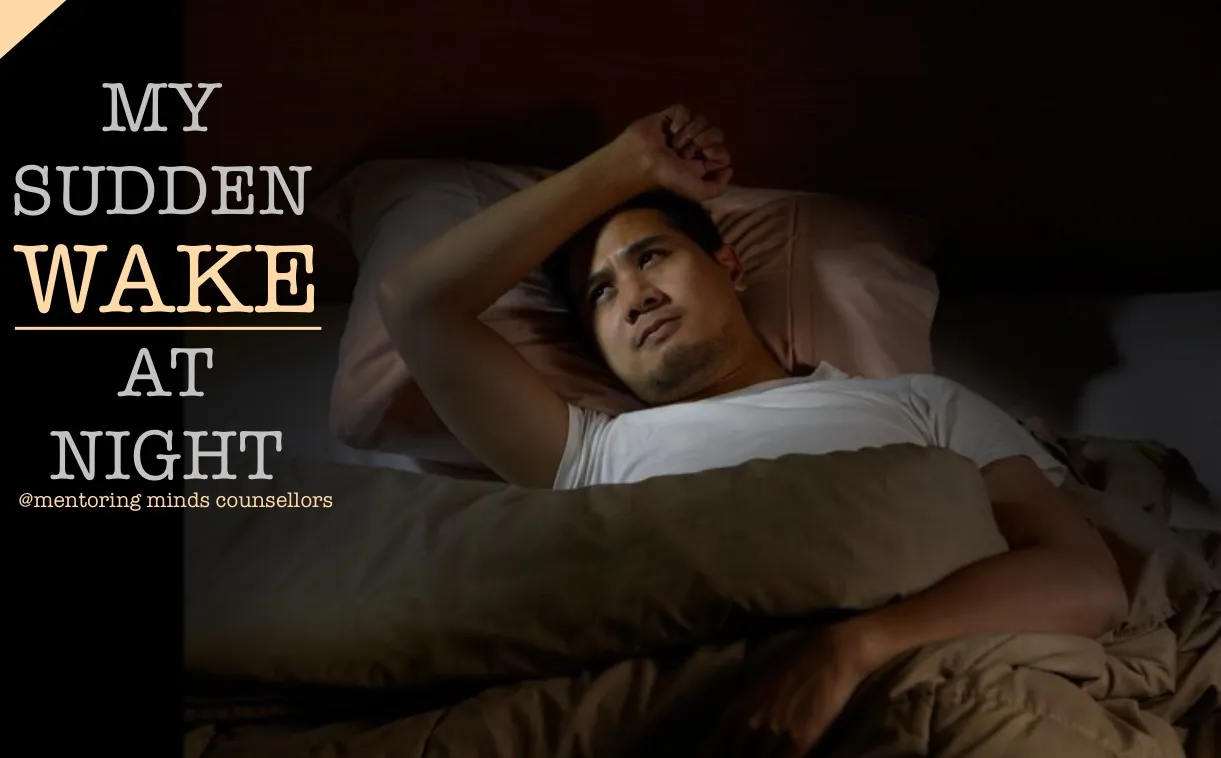Sure! Here’s a human-like blog post that explains why you might suddenly wake up at night and offers practical tips to help you fall back asleep:
Why Do I Suddenly Wake Up at Night — and How Can I Fall Back Asleep?
You’re warm, cozy, and deep in sleep… and then, suddenly, you’re wide awake. Maybe it’s 2:00 AM. Maybe your mind is racing, or maybe everything feels still, except for that nagging question: Why am I awake?
Waking up in the middle of the night isn’t uncommon. In fact, most people experience short awakenings as part of a normal sleep cycle. But when you notice it happening regularly and it disrupts your ability to fall back asleep it can be incredibly frustrating.
What are the common Reasons You Wake Up at Night?
- Stress
Mental chatter is a top culprit. If you’ve got a lot on your plate or you’re subconsciously worrying, your brain might pull you out of sleep just to chew on thoughts you didn’t process during the day. - Blood Sugar Dips
If you eat dinner early and your blood sugar drops too low in the night, it can trigger a stress response in the body waking you up with a jolt or a general restlessness. - Noise or Light
Even subtle changes in your environment, like a car driving by, a pet moving around, or streetlights filtering in through the blinds, can be enough to wake you up. - Hormonal Changes
Cortisol (the stress hormone) naturally rises in the early morning. In some people, it may spike too early, waking you up before you’re ready. Hormonal shifts due to age, menstruation, or menopause can also disrupt sleep. - Alcohol
Both can interfere with sleep quality. Alcohol may help you fall asleep faster, but it messes with REM sleep and causes fragmented sleep later in the night. Caffeine, of course, is a stimulant and it can linger in your system longer than you think.
How to Fall Back Asleep
So you’re awake. Now what?
1. Don’t Check the Time
Looking at the clock can instantly trigger anxiety. You start counting the hours until your alarm and worrying about how tired you’ll be. Instead, turn the clock away from you or put your phone out of reach.
2. Try a Breathing Exercise
Something as simple as the 4-7-8 method (inhale for 4 seconds, hold for 7, exhale for 8) can help activate your parasympathetic nervous system your body’s “rest and relax” mode.
3. Get Out of Bed If You’re Wide Awake
If 20 minutes have gone by and you’re still tossing and turning, go to a dimly lit room and do something calming read a physical book, do light stretches, or journal. Avoid screens. When you feel sleepy again, return to bed.
4. Keep the Lights Low
Bright light tells your brain it’s morning. If you must get up, use a soft, warm nightlight or red-light bulb instead.
5. Avoid Doomscrolling
Tempting as it is, resist picking up your phone to scroll through social media or the news. The blue light plus the stimulation will only make things worse.
Bonus: How to Prevent Waking Up in the First Place
- Stick to a regular sleep schedule even on weekends.
- Cut off caffeine by mid-afternoon.
- Keep your bedroom cool, dark, and quiet.
- Don’t go to bed starving or overly full.
- Wind down before bed with a calming ritual like reading, journaling, or gentle yoga.
Final Thoughts
We at Mentoring Minds Counsellors understand that It’s normal to wake up once or twice a night but it’s how you handle those wake-ups that makes the difference. The key is staying calm and not letting stress about sleep rob you of more sleep.
Your body knows how to sleep. Sometimes, it just needs a little help remembering.


Leave a Comment